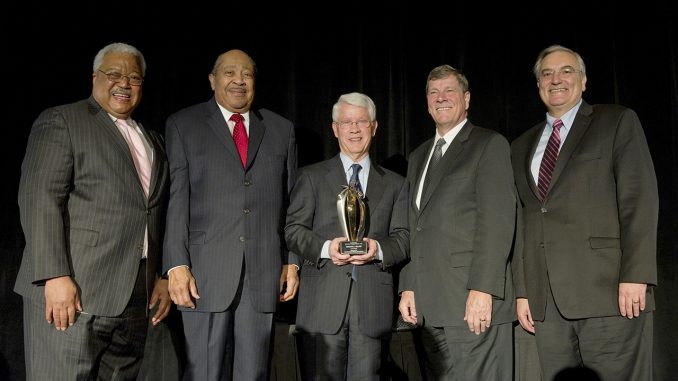
As a professor at Howard University, a historically Black university, Johnny Graham knows that representation is important.
“When you’re talking about academia or any other field, people are drawn to places where they see themselves represented,” said Graham, a 2016 marketing Ph.D. alumnus. “When people have similar culture of lifestyle backgrounds…it provides a sense of enlightenment and hope that is necessary.”
During his time at Temple, Graham participated in programming through The PhD Project, a mentorship program for African-American, Hispanic and Native American Ph.D. candidates at universities in the United States. Bernie Milano, a 1961 accounting alumnus, has been the president since its creation in 1994. It was founded by the KPMG Foundation, a nonprofit that supports accounting education.
Nearly 300 universities participate in The PhD Project. Since the program’s inception, the number of people of color with business Ph.D. degrees in the U.S. has grown from 294 to more than 1,400 today.
Milano began working for KPMG after his graduation in the early 1960s. By the mid-1970s, he became KPMG’s national partner for university recruiting.
Through that role, Milano began to recognize that very few students of color attended business schools. Even fewer students of color studied accounting or finance, he said, which were the fields he targeted as a recruiter.
Milano hypothesized that business schools lacked a racially diverse student body because of a similar lack in faculty of color. Two decades later in the 1990s, he acted on this idea by founding The PhD Project to encourage minority business professionals to earn Ph.D.s and become professors.
“Our program is about recruiting people of color who are already in corporate careers who might have…wondered what a career as a professor would be like,” Milano said. “The road to becoming a professor, the road to entering a Ph.D. program is a mystery to most people.”
Because business Ph.D. programs tend to be smaller than other Ph.D. programs, Milano said there is less information available about how to prepare for them. The PhD Project strategically uses advertising and sends representatives to conferences with high percentages of non-white attendees to drive interest in the program.
“It’s such a big decision to leave a job [for a Ph.D. program],” Milano said. “Perhaps you have a mortgage, perhaps you have children in school. It’s not something people decide on lightly.”
Every November, about 300 to 350 people attend The PhD Project’s annual conference in Chicago to learn about business Ph.D. programs, Milano said. More than 100 universities send representatives to the conference.
“At that conference they learn a lot about, ‘What is a doctoral program really like? What is a career as a professor really like? What do doctoral programs look for in an applicant?’” Milano said.
Lisa Fitch, Fox School of Business’ senior associate director for doctoral programs, said Temple alumni who participated in The PhD Project often attend the conference to talk to prospective applicants about their experiences in the program.
“I think the impact is good for our current students because we allow our students to represent during recruiting events and also give encouragement to the prospects,” Fitch said.
The PhD Project candidates who are accepted into doctoral programs join one of five student associations organized by The PhD Project. The associations — accounting, finance, information systems, management and marketing — serve as support groups for students of color who often enroll in programs with very few nonwhite students.
“If an African-American enters a [finance] doctoral program at a university…they might be the only African-American in the doctoral program, they might be the only African-American including all the finance faculty at the university,” Milano said. “That’s a very difficult, isolated, uncomfortable environment to be in. So we don’t let that happen.”
The PhD Project has also recently added programs to help current faculty members of color at universities across the country.
One program, Milano said, focuses on elevating tenured professors of color to positions as department heads and deans of business schools.
Fox’s Dean Moshe Porat is Israeli, but the majority of deans at Temple are white.
In the coming months, Milano said they plan to start a training program for senior faculty members of color looking to become corporate board members.
Today, Milano said he sees many universities working to increase the diversity of their faculty. But unlike the work of The PhD Project, he said these efforts focus mostly on their specific institution, instead of on a national level.
“We represent the only national program that is aimed at doing a serious job at diversifying business school faculty,” Milano said.
*UPDATE: This story has been edited to reflect the most recent information.
CORRECTION: The previous version of this story misstated the number of attendees for The PhD Project’s annual conference in Chicago. An estimated 300 to 350 people are invited and attend the conference.


Be the first to comment